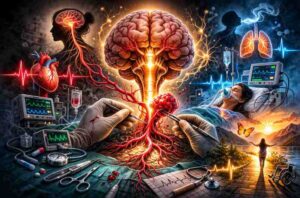“Yeh saab bhi Vellore jaa ke aaya,” my South Indian barber initiates a cross-conversation, referring to the guy whose hair he was cutting, while I was getting a trim (of whatever little hair I have left) on the adjacent chair by his colleague. He knows I spent close to a decade training in neurosurgery at the Christian Medical College in Vellore; a place of hope, reverence, and spiritual ethos, where, coincidentally, the aforementioned gentleman had had a bone marrow transplant for leukaemia a few years ago, as I came to know later.



